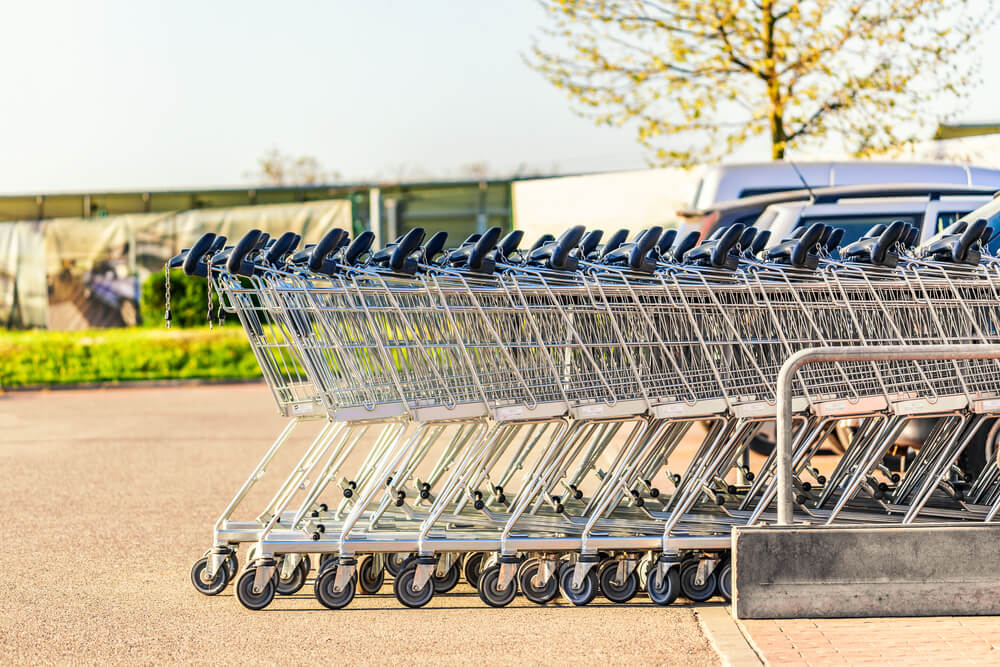Retail Store Owners and Liability for Faulty Shopping Carts

Shopping carts make it convenient for customers to transport items throughout the store, encouraging larger purchases and a more enjoyable shopping experience. Moreover, the constant use and wear and tear on shopping carts can lead to maintenance issues that, if neglected, pose risks to shoppers. If you or someone you love was injured in a retail store due to a defective shopping cart, an experienced premises liability attorney can help you obtain your rightful compensation.
Common Injuries in Shopping Cart Accidents
Injuries resulting from faulty shopping carts can vary in severity, but some common injuries are:
- Head Injuries: If a cart tips over or an overhead object falls, head injuries like concussions or lacerations can occur, potentially leading to long-term health issues.
- Back and Neck Injuries: Awkward movements or falls associated with a faulty cart can result in back or neck injuries, such as herniated discs or whiplash.
- Fractures and Broken Bones: In more serious cases, a shopper may suffer fractures or broken bones, especially if the cart tips over or there is a fall.
- Soft Tissue Injuries: Damaged or malfunctioning carts can cause sudden jolts or unexpected movements that strain or damage soft tissues, leading to injuries like muscle tears or ligament damage.
- Cuts and Abrasions: Jagged edges, broken parts, or sharp protrusions on a shopping cart can cause cuts and abrasions when they come into contact with your skin.
- Bruises and Contusions: You may experience bruising or contusions from collisions with or falls caused by unstable or defective shopping carts.
- Sprains and Strains: Pushing or maneuvering a faulty cart may require excessive force, leading to sprained muscles or strained ligaments, often in the back, shoulders, or wrists.
- Contaminations and Infections: In some cases, rusty or dirty carts may cause puncture wounds that lead to infections if not treated promptly and properly.
Holding a Retail Store Owner Liable After a Faulty Shopping Cart Accident in Atlanta
A retail store owner in Atlanta can be held liable for a faulty shopping cart accident under premises liability law if certain conditions are met:
Duty of Care
Retail store owners owe a duty of care to their customers. This duty includes maintaining a safe shopping environment, which extends to ensuring that shopping carts are in proper working condition and free from defects that could harm customers.
Negligence
To establish liability, you need to prove that the store owner or their employees were negligent in maintaining or inspecting the shopping carts. Negligence in this context can involve actions or omissions, such as:
- Failing to regularly inspect and maintain shopping carts.
- Ignoring or inadequately addressing known defects or hazards.
- Failing to properly repair or remove faulty shopping carts from circulation.
Causation
You will need to demonstrate that the negligence of the store owner directly caused your injuries. In the case of a faulty shopping cart, causation would involve showing that the defect in the cart led to the accident and subsequent injuries.
Notice of Defect
It may be necessary to prove that the store owner had notice of the defect or should have known about it. This could involve evidence that the defect was longstanding, repeatedly reported by customers, or discovered during routine inspections. The defect in the shopping cart must be the proximate cause of the injuries. In other words, your attorney will need to show a clear connection between the cart’s condition and the harm you suffered.
Damages
To pursue a legal claim, you must have suffered actual damages. These damages can include medical expenses, lost wages, pain and suffering, and other losses related to the injuries. Georgia follows a modified comparative negligence system, which means that if you share some degree of fault for the accident, your compensation may be reduced proportionally. It’s important to assess whether the injured party’s actions may have contributed to the accident.
Evidence to Strengthen Your Premises Liability Claim in Atlanta
You should work with an attorney to gather strong evidence to prove your premises liability cases involving shopping cart injuries. A resilient and proven attorney will prepare a strong claim by collecting the following types of evidence:
- Photographs: Take photos of the defective shopping cart, including any visible defects, damage, or hazardous conditions.
- Witness Statements: Obtain statements from any witnesses who saw the incident or can attest to the condition of the cart.
- Medical Records: Keep records of all medical treatment, including diagnoses, treatments, prescriptions, and medical bills.
- Incident Report: If the store has an incident report, request a copy. This can provide invaluable information about the incident.
- Maintenance Records: If available, gather maintenance and inspection records related to the shopping carts.
- Documentation of Expenses: Help you maintain records of all expenses related to the injuries, including medical bills and receipts.
- Expert Opinions: In complex cases, your attorney may consult experts who can provide opinions on issues such as cart defects or the extent of injuries.
In Georgia, generally, a person has two years from the date of the injury to file a lawsuit. Missing the statute of limitations deadline can result in the forfeiture of the right to pursue a claim. Therefore, it is essential that you consult with an attorney promptly to ensure compliance with the statute of limitations.
Our Attorneys will Fight to Maximize Your Premises Liability Compensation
The experienced personal injury attorneys at the law offices of DuBose Miller will help you get the justice and compensation you are entitled to. Our track record of successful premises liability cases speaks to our proven effectiveness in obtaining the settlement our clients deserve. To request your free consultation with our legal team, call (404) 720-8111 or reach us online.
